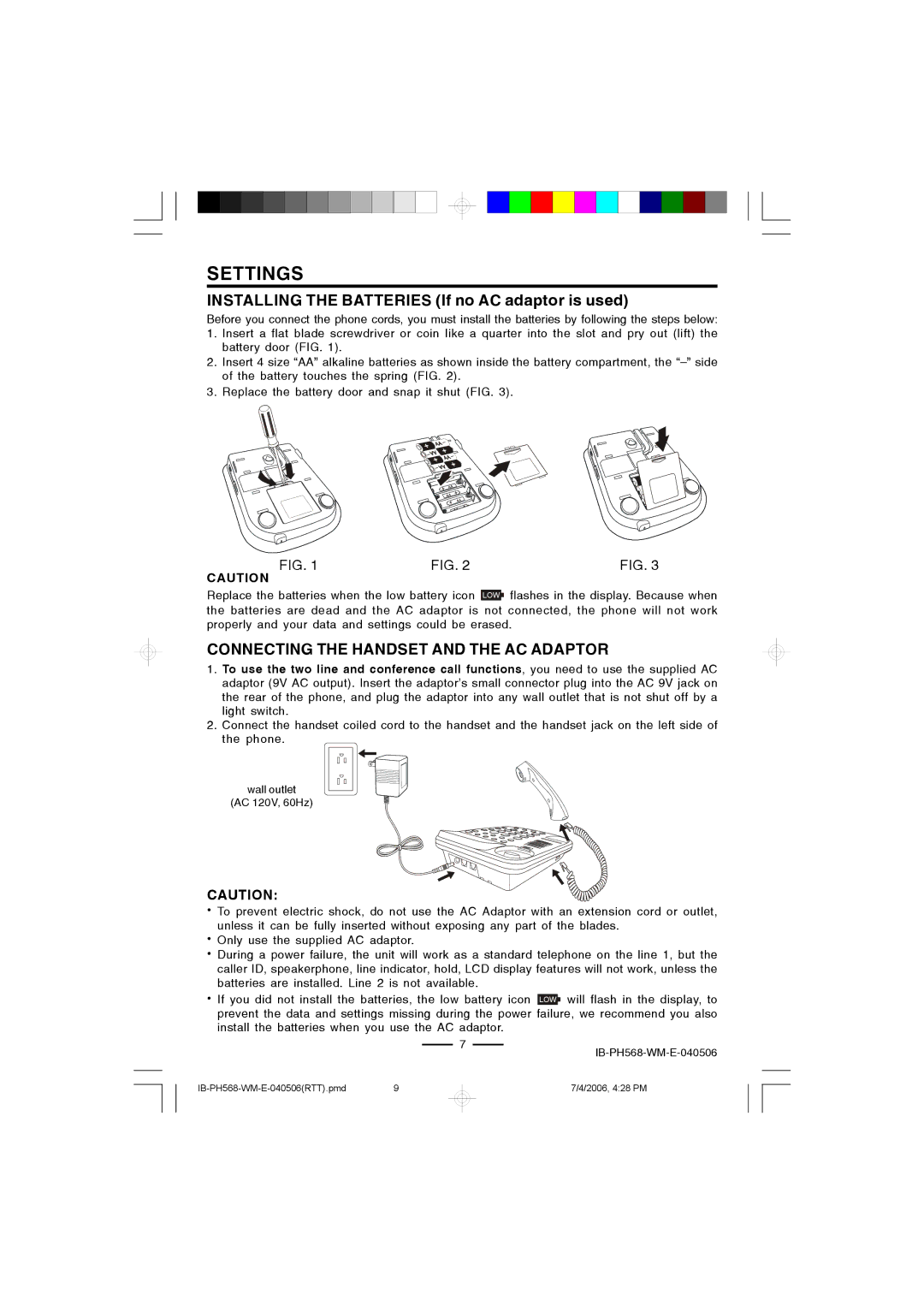
SETTINGS
INSTALLING THE BATTERIES (If no AC adaptor is used)
Before you connect the phone cords, you must install the batteries by following the steps below:
1.Insert a flat blade screwdriver or coin like a quarter into the slot and pry out (lift) the battery door (FIG. 1).
2.Insert 4 size “AA” alkaline batteries as shown inside the battery compartment, the
3.Replace the battery door and snap it shut (FIG. 3).
FIG. 1 | FIG. 2 | FIG. 3 |
CAUTION
Replace the batteries when the low battery icon LOW![]() flashes in the display. Because when the batteries are dead and the AC adaptor is not connected, the phone will not work properly and your data and settings could be erased.
flashes in the display. Because when the batteries are dead and the AC adaptor is not connected, the phone will not work properly and your data and settings could be erased.
CONNECTING THE HANDSET AND THE AC ADAPTOR
1.To use the two line and conference call functions, you need to use the supplied AC adaptor (9V AC output). Insert the adaptor’s small connector plug into the AC 9V jack on the rear of the phone, and plug the adaptor into any wall outlet that is not shut off by a light switch.
2.Connect the handset coiled cord to the handset and the handset jack on the left side of the phone.
wall outlet
(AC 120V, 60Hz)
CAUTION:
•To prevent electric shock, do not use the AC Adaptor with an extension cord or outlet, unless it can be fully inserted without exposing any part of the blades.
•Only use the supplied AC adaptor.
•During a power failure, the unit will work as a standard telephone on the line 1, but the caller ID, speakerphone, line indicator, hold, LCD display features will not work, unless the batteries are installed. Line 2 is not available.
•If you did not install the batteries, the low battery icon LOW![]() will flash in the display, to prevent the data and settings missing during the power failure, we recommend you also install the batteries when you use the AC adaptor.
will flash in the display, to prevent the data and settings missing during the power failure, we recommend you also install the batteries when you use the AC adaptor.
7
7/4/2006, 4:28 PM
